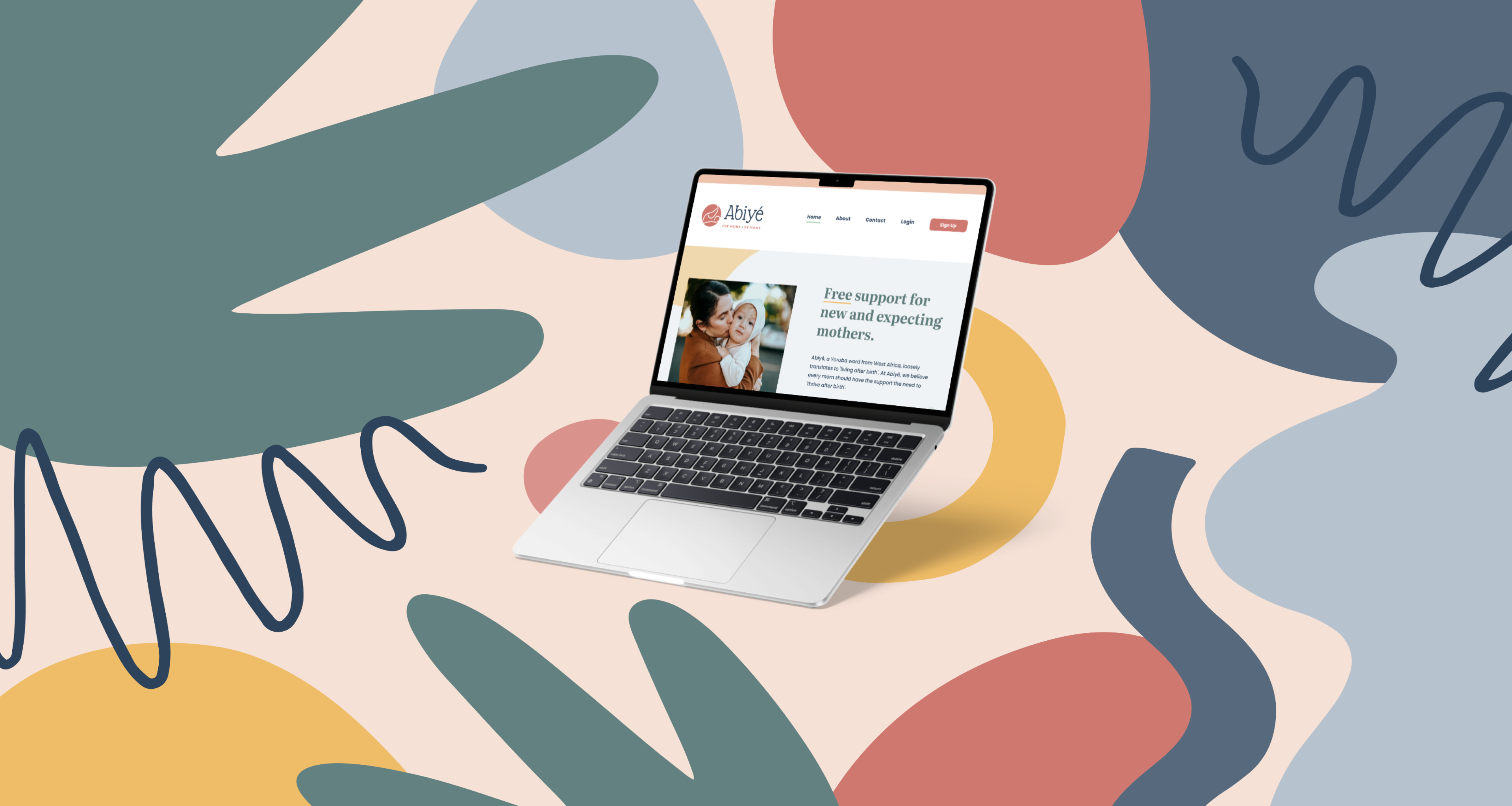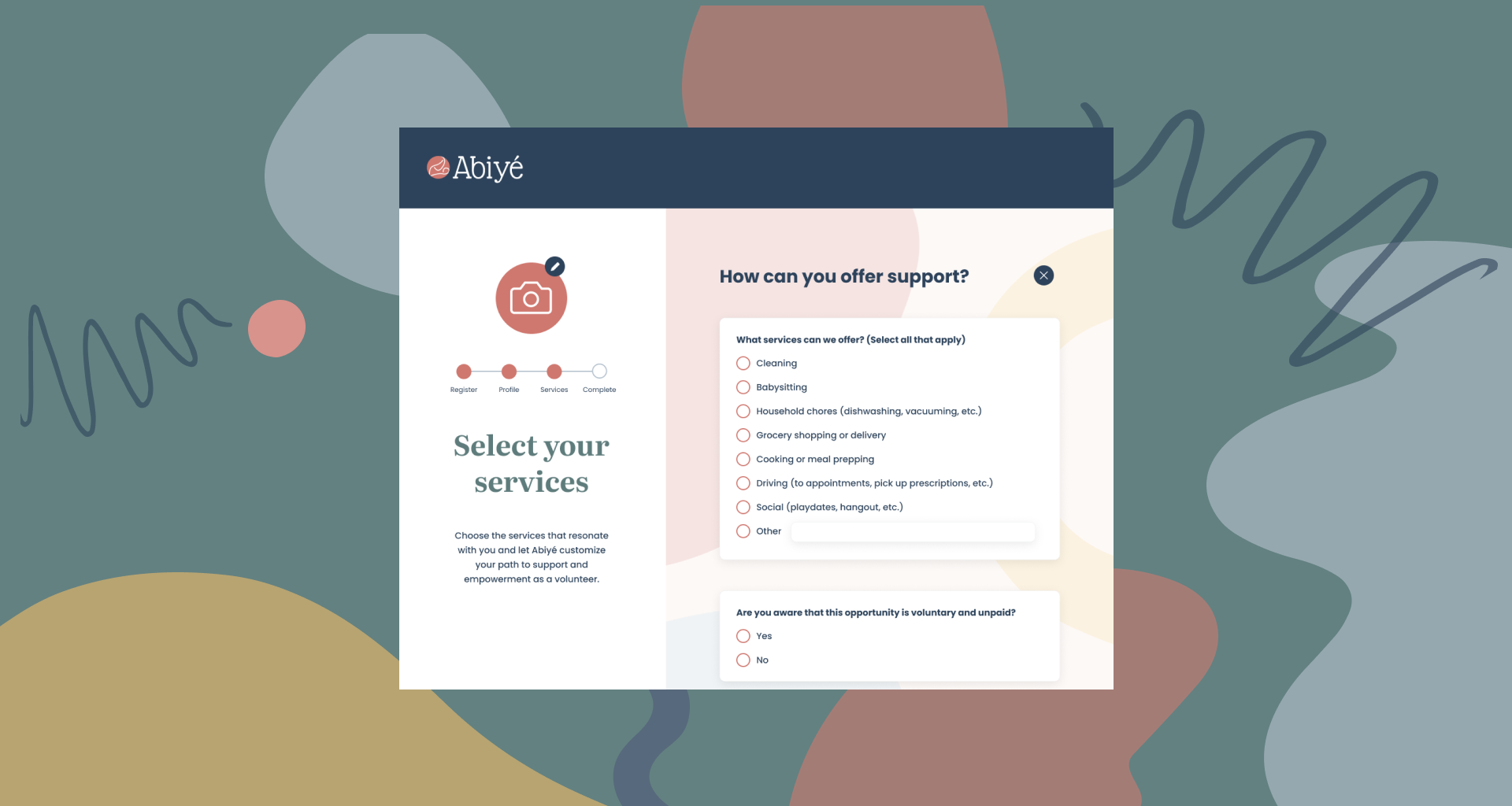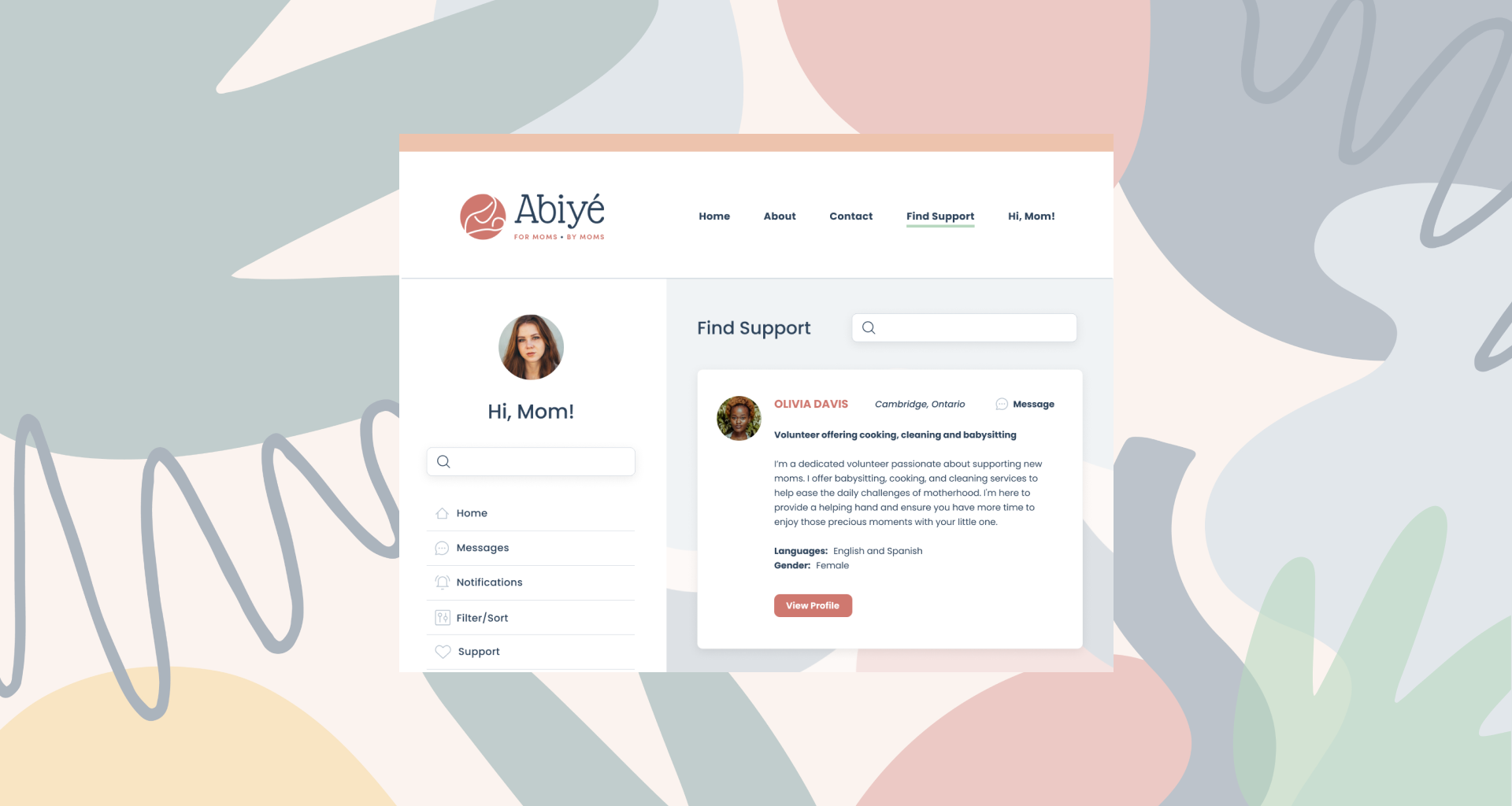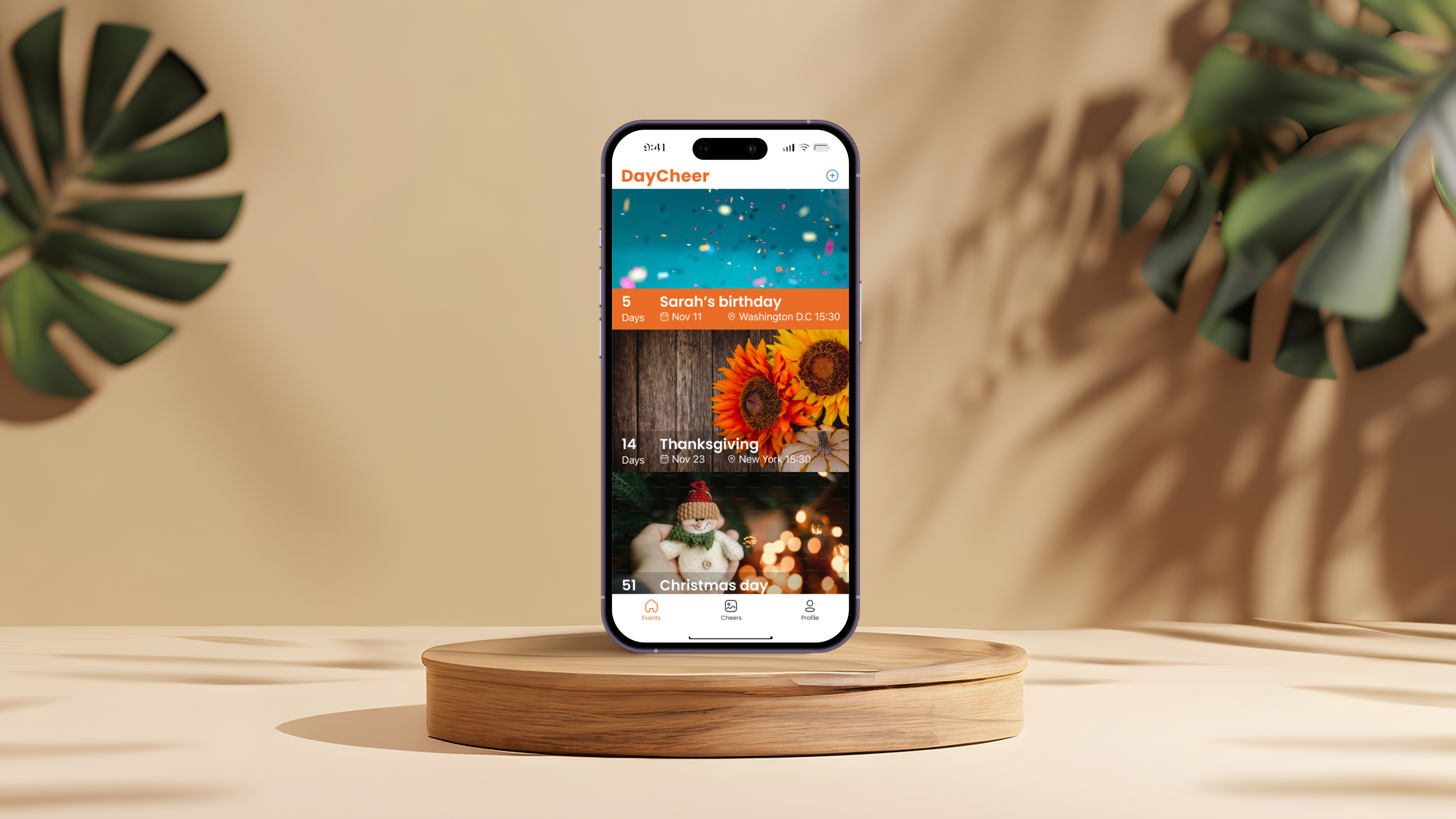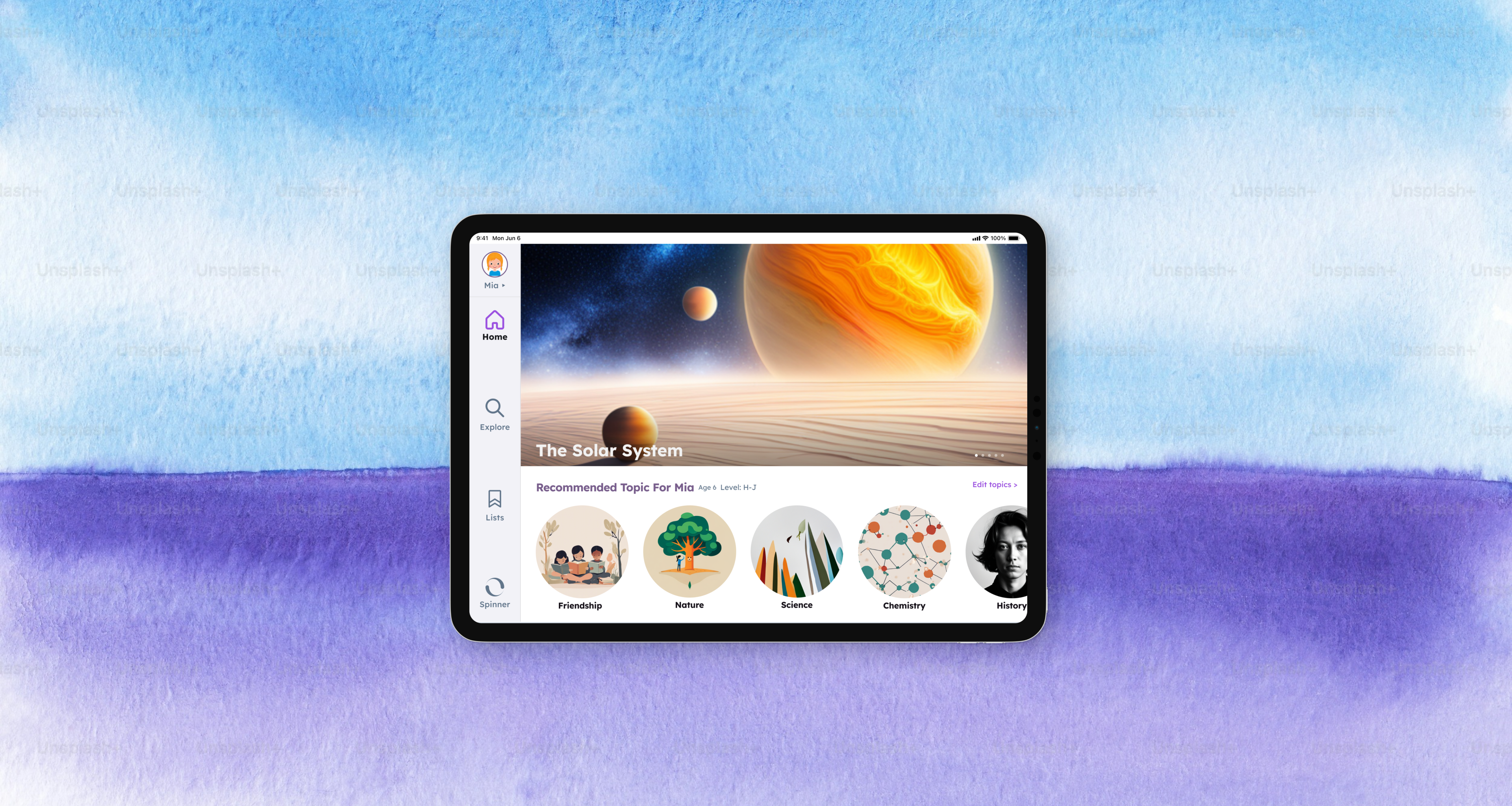Abiyé
USER RESEARCH
Empowering Design Through User Research and Insights
Project Overview
Abiyé, derived from the Yoruba meaning "thriving after birth", is a local digital platform designed to connect new and expecting mothers in Cambridge, Kitchener, and Waterloo, Canada, with volunteers willing to support them during their motherhood journey.
My Role

Problem Statement
New parents face physical, emotional, and psychological challenges during pregnancy, childbirth, and postpartum recovery. This is especially true for new mothers who often experience stress, loss of relationships, and shifts in identity. Lack of support exacerbates these challenges, leading to high rates of postpartum depression and anxiety. Despite existing services, there remains a gap in practical support for daily activities.

Goal
Our goal is to connect mothers with volunteers who can offer the specific services and guidance they need.
Supportive
Providing a way for moms to access the physical support they need while navigating their journey.
Trustworthy
Cultivating a place where moms can go to find what they need in order to take care of themselves.
Community
Helping moms have their own "village" in order to give them the mental and emotional support they might need.
Process

Research
Secondary Research
We began with extensive secondary research to gain a foundational understanding of the challenges faced by new and expecting mothers. This involved reviewing academic literature, government health reports, and studies on postpartum depression, anxiety, and maternal health. For example, we found that nearly 23% of mothers experience postpartum depression, with rates rising to 31% in certain regions. Link This research underscored the critical need for a comprehensive support system, guiding our project's focus on providing practical, everyday support to new mothers.
23%
of Canadian mothers suffer from Postpartum Depression
30%
of births are
delivered by C-section
87%
of new moms
wish they had some guidance
Competitive Analysis
Our competitive analysis examined three key competitors: Nannyservices.ca, Care.com, and Almacare.ca.
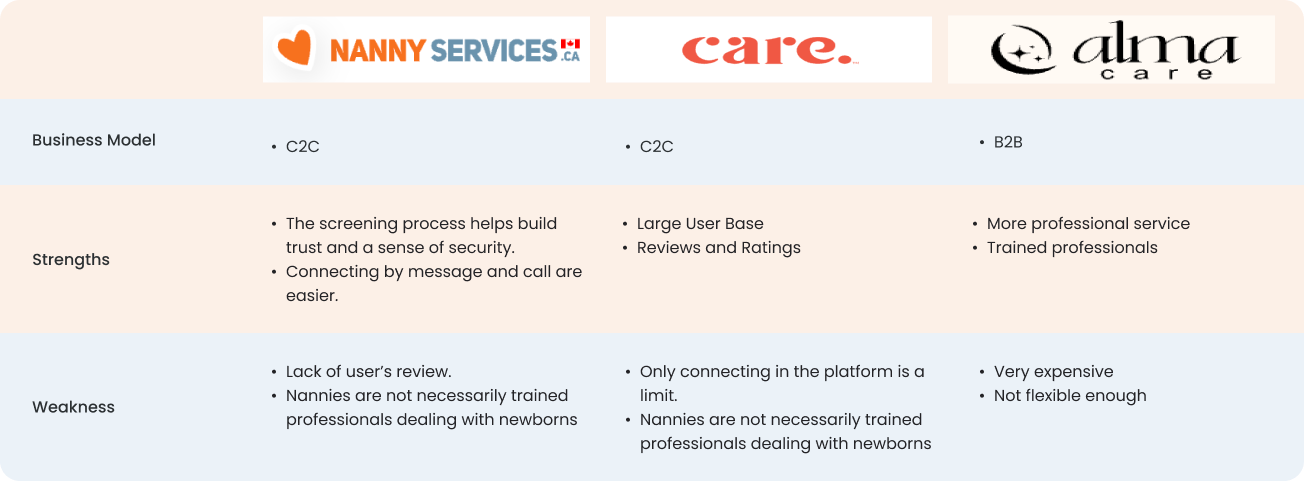
Positioning Abiyé:
Holistic Support System
Provide a comprehensive range of services, including childcare, housekeeping, meal preparation, errands, transportation, and tutoring, to support both mothers and children.
Personalized Matching
Recommend caregivers based on user information and needs, considering factors like location, experience, schedule, languages, and services required.
Enhanced Trustworthiness
Implement robust caregiver screening, involve medical and nursing students, require professional training certification, and encourage user reviews and ratings.
Community Building
Integrate resource referrals, community events, and workshops to foster connections and knowledge sharing among users.
Heuristic Analysis
We analyzed three competitors:Nannyservices.ca, Care.com, and Almacare.ca, focusing on the volunteers' page, mom’s page, sign-up processes, and usage frequency. All platforms demonstrate proficiency in the three heuristic principles.
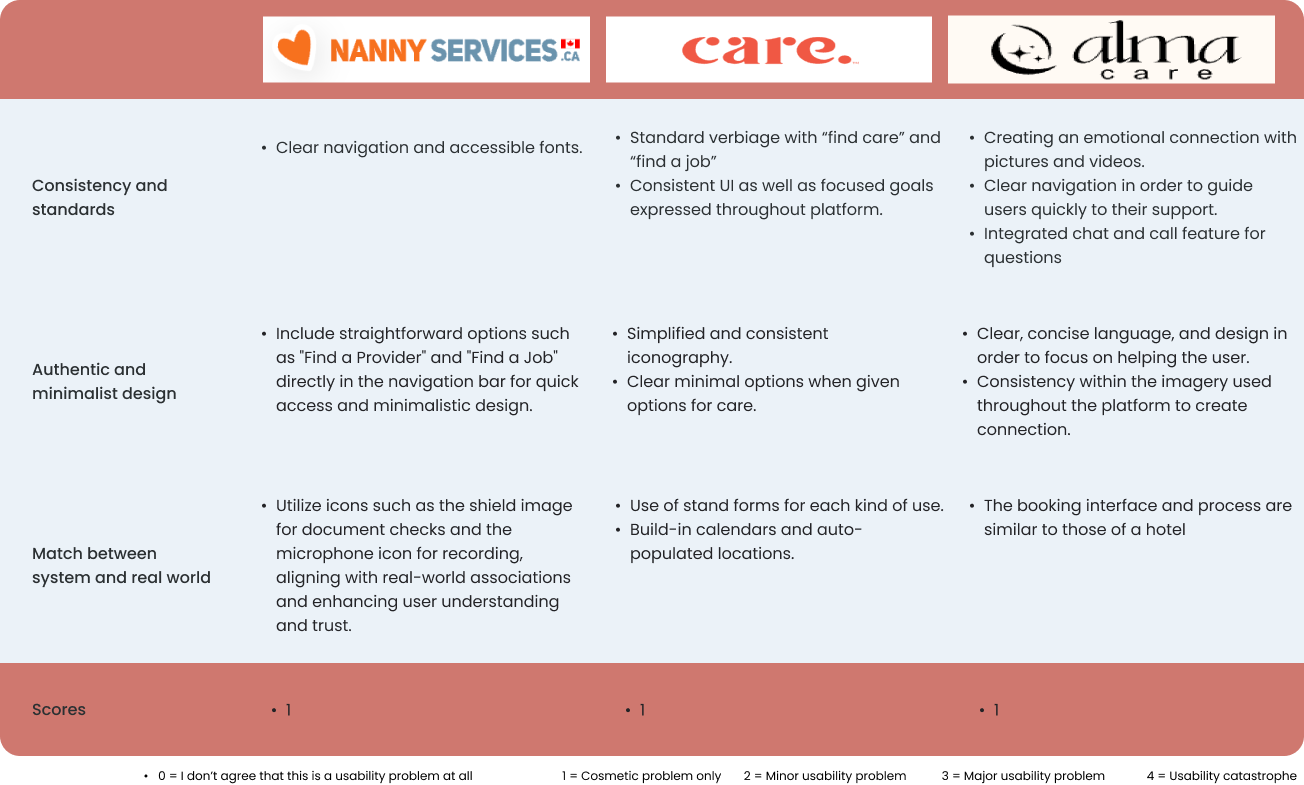
ANALYSIS
Survey and User Insights
Our survey and user insights data were collected by our client from community groups, social groups, social media, grassroots associations, and religious houses.
The survey aimed to identify the specific support that new and expecting mothers need and the assistance volunteers are willing to offer. We received responses from 8 mothers and 10 volunteers. All volunteers were aware that this was a non-paid service.
Our findings revealed that mothers highly required help with social activities and driving, while volunteers were most willing to assist with babysitting and grocery shopping/delivery.
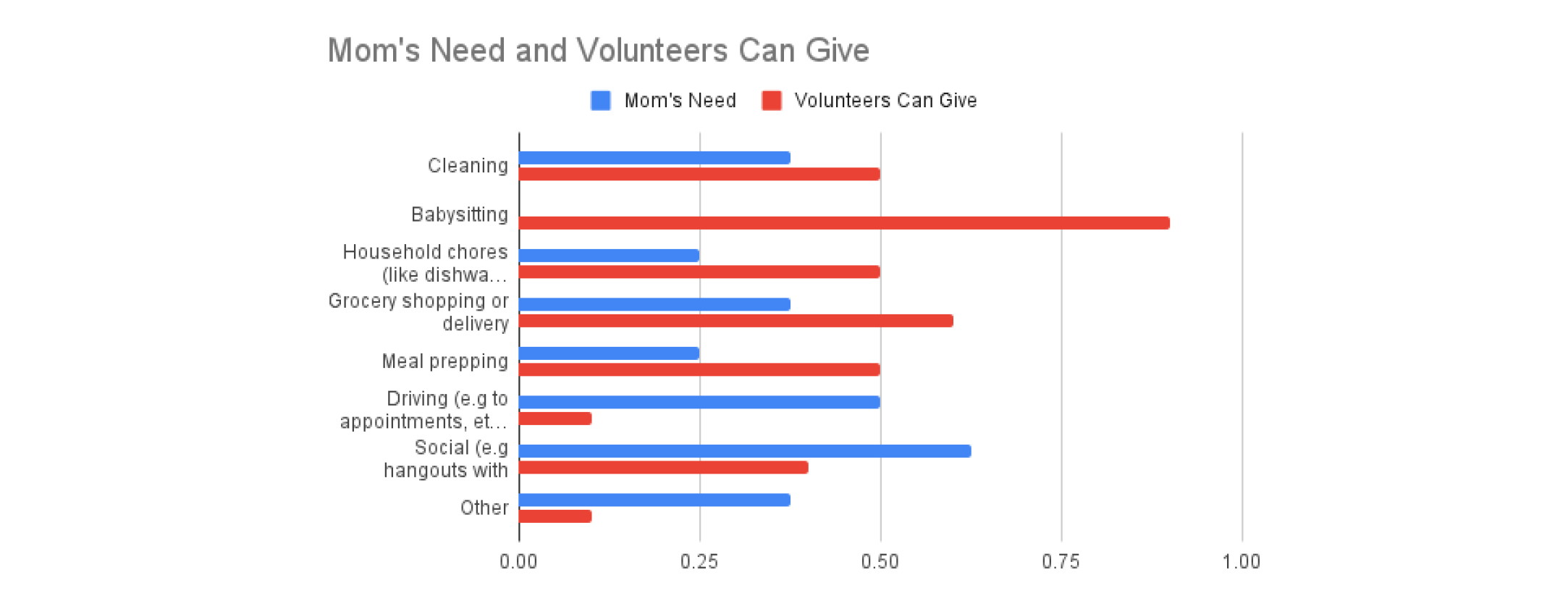
Interestingly, although 90% of volunteers offered babysitting services, none of the surveyed mothers expressed a need. However, further user insights indicated that some mothers desire babysitting or nanny services. This discrepancy highlights a gap that warrants further research.

User Personas
We created two detailed user personas to guide our design and development process: Sarah, the Birthgiver, and Rebekah, the Volunteer.
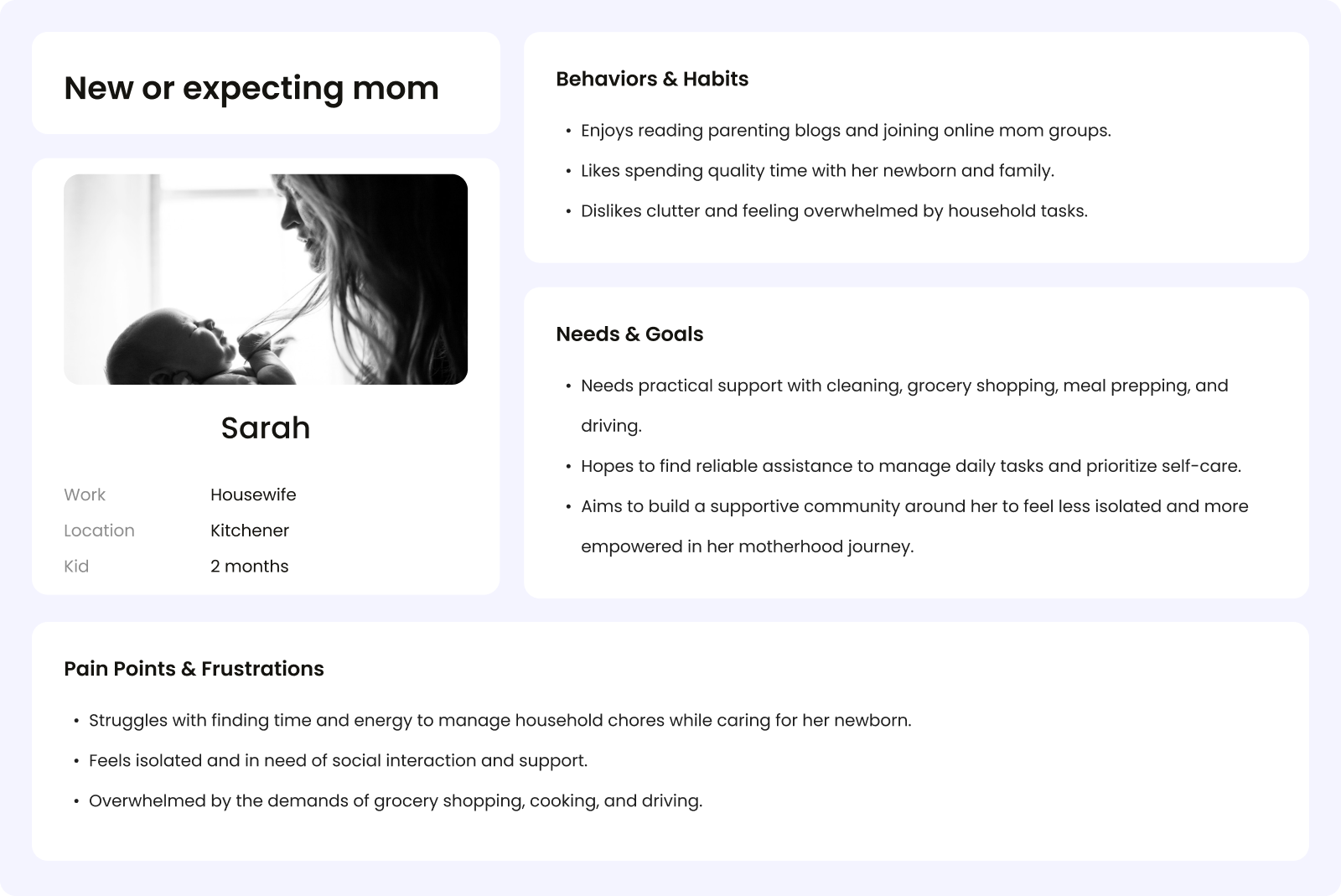
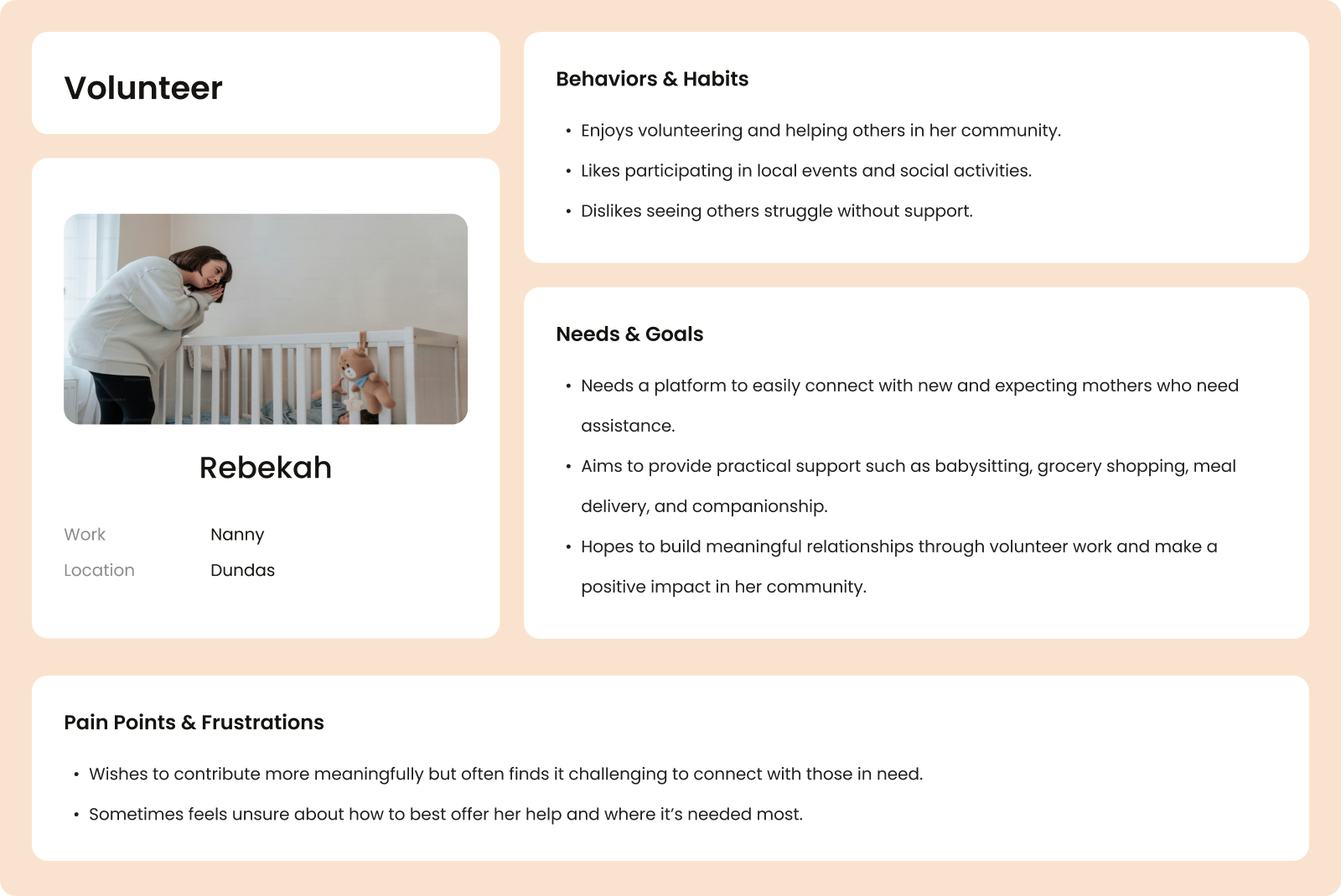
How Might We
To address the challenges and needs identified through our research and user personas, we framed our design opportunities with the following "How Might We" questions:
- How might we connect new and expecting mothers with local volunteers who can provide practical support?
- How might we ensure the platform is easy for mothers and volunteers?
- How might we ensure the safety and reliability of the support provided?
DESIGN
User Flows
To provide a seamless experience, we developed tailored user flows for mothers and volunteers.
The most significant distinction is that volunteers need a police check because mothers do not want any unsafe persons to enter their homes.
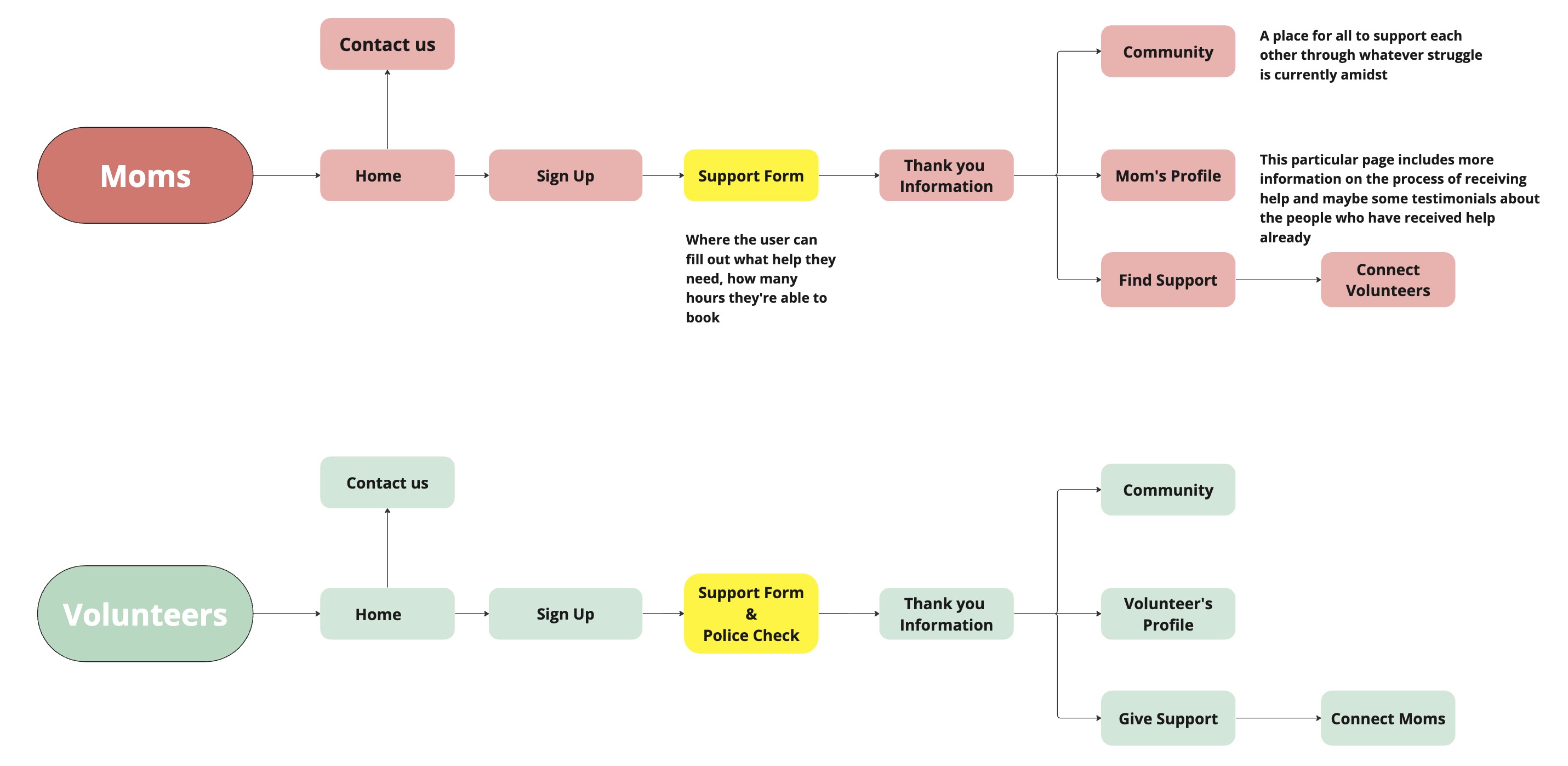
Sketches to Wireframes
In the initial design phase, we focused our design on key components of the Abiyé platform: the landing page, registration flow, and profiles for both moms and volunteers.

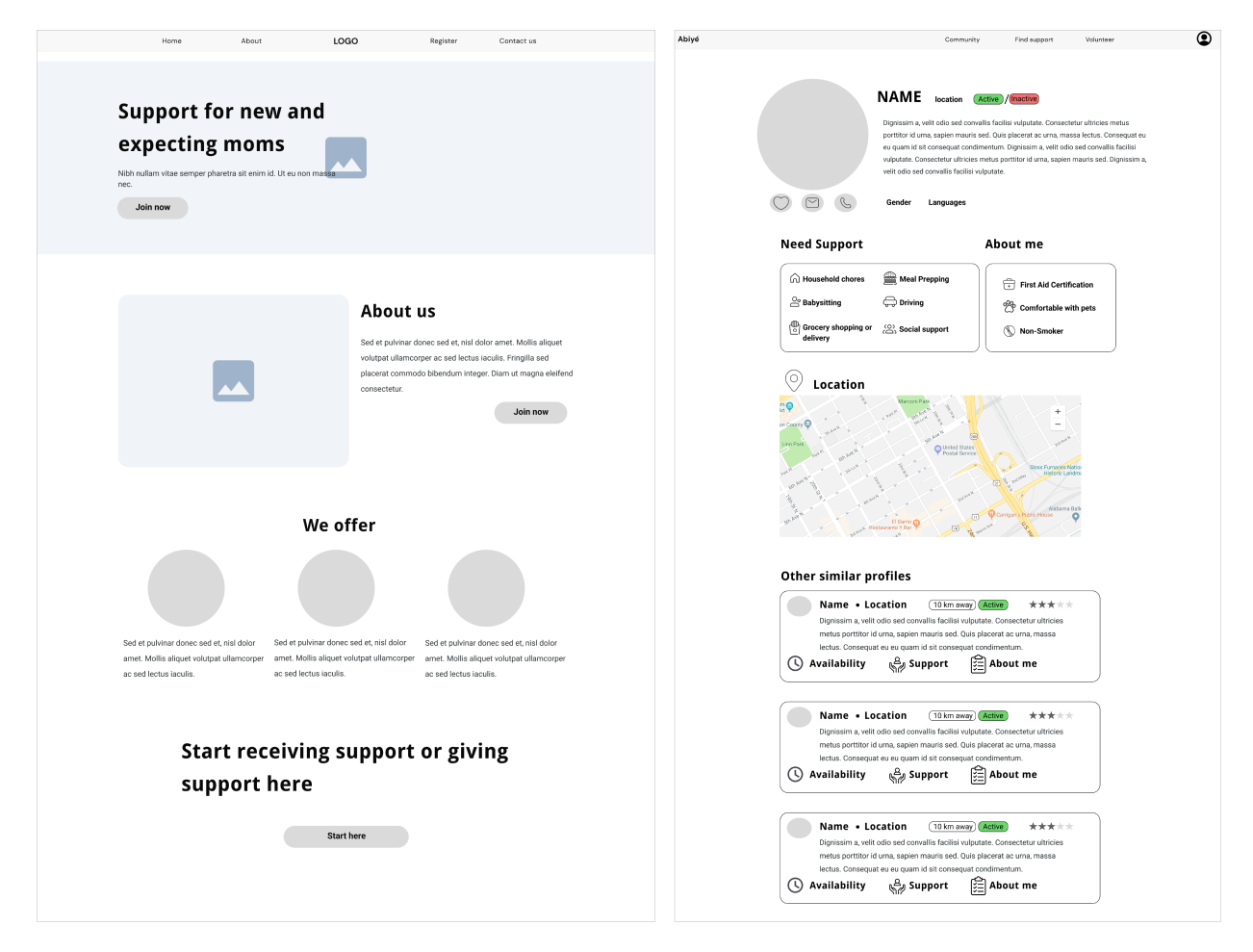
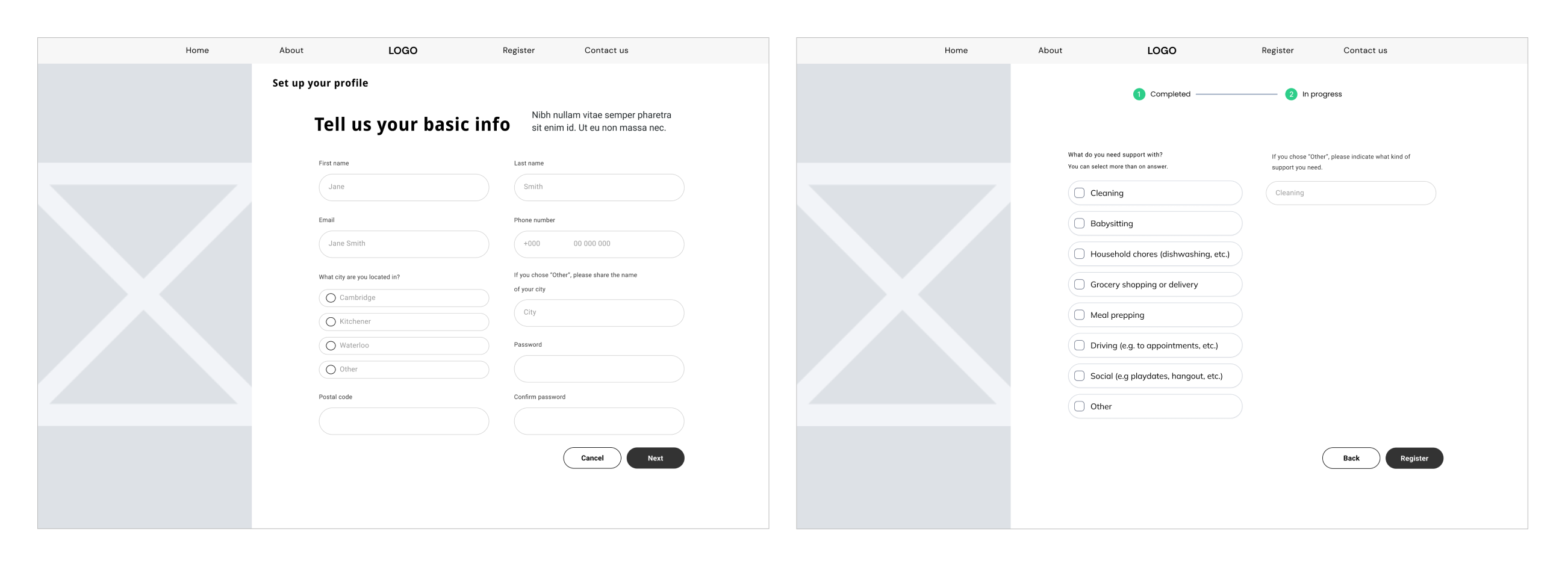
Branding
While sketching and wireframing, we also worked on branding guide design.
We chose Poppins and Literata as our primary fonts to ensure readability and a modern aesthetic. The color palette was carefully selected to evoke warmth and support, conveying a sense of calm and reliability. Iconography was designed to be simple and intuitive, enhancing the user interface without overwhelming it.

High Fidelity
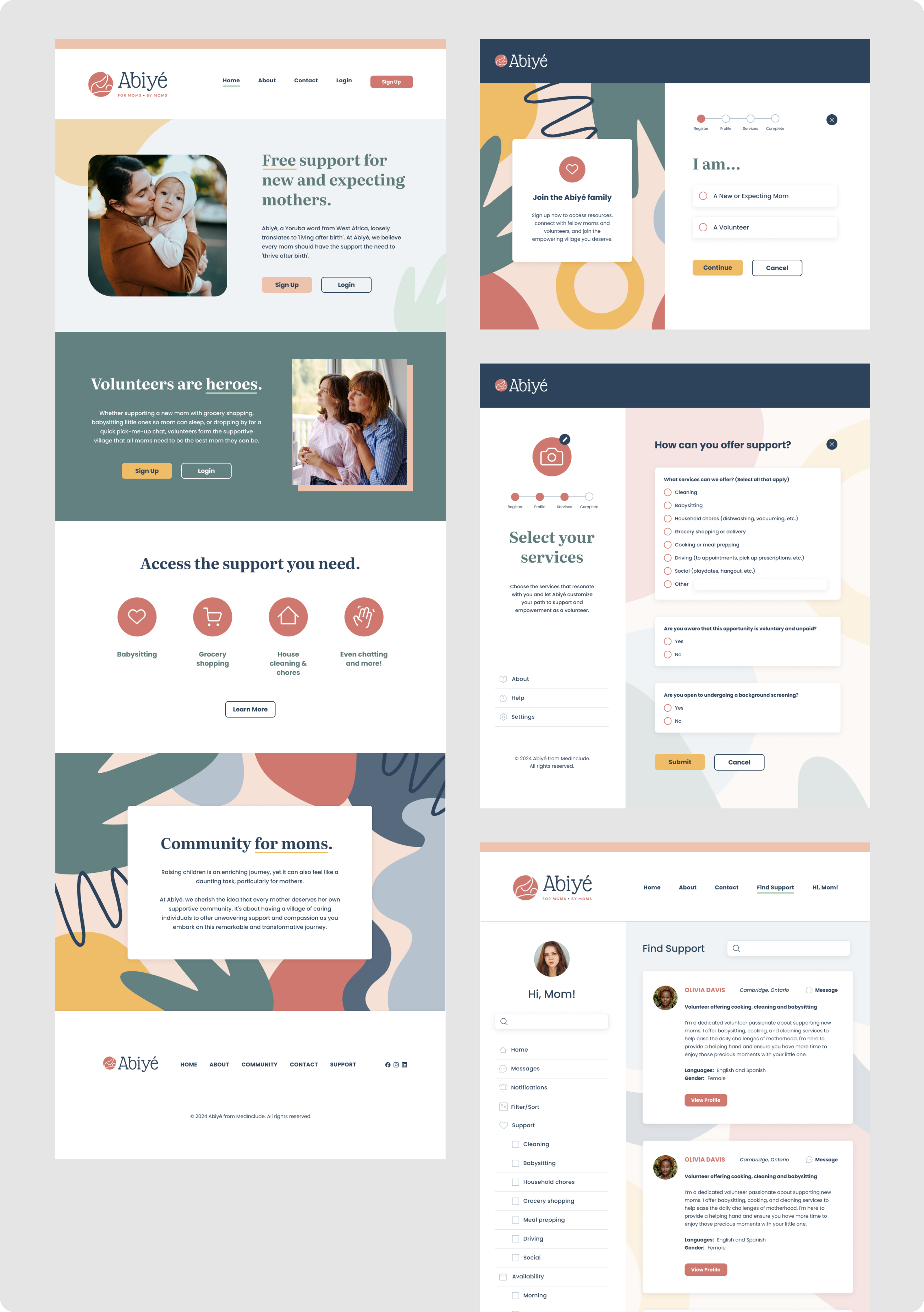
VALIDATION
Usability Testing
Due to time constraints, we conducted usability tests using wireframes, focusing on task completion by moms and volunteers. Our initial plan was to involve 3 moms and 3 volunteers in the testing process. However, scheduling conflicts prevented the participation of several local, experienced volunteers, leaving us with 3 moms and 1 volunteer.
Despite this, we determined that feedback from these 4 participants would still provide sufficient insights for our evaluation, as the testing primarily focused on the registration flow, finding/giving support, and the layout of the interface, which are similar for both moms and volunteers.
Key Findings:
All participants completed the test tasks, and the overall satisfaction score was 4.8 out of 5. The main issues encountered were related to the registration process, police checks, and finding support.
Major Issues Encountered:
- Confusing Terminology
Users were confused by the terms ‘start here,’ ‘join now,’ and ‘register.’ - Police Check Process
Users didn’t know how to complete a police check. - Payment Uncertainty
Users were unsure if they needed to pay for services.
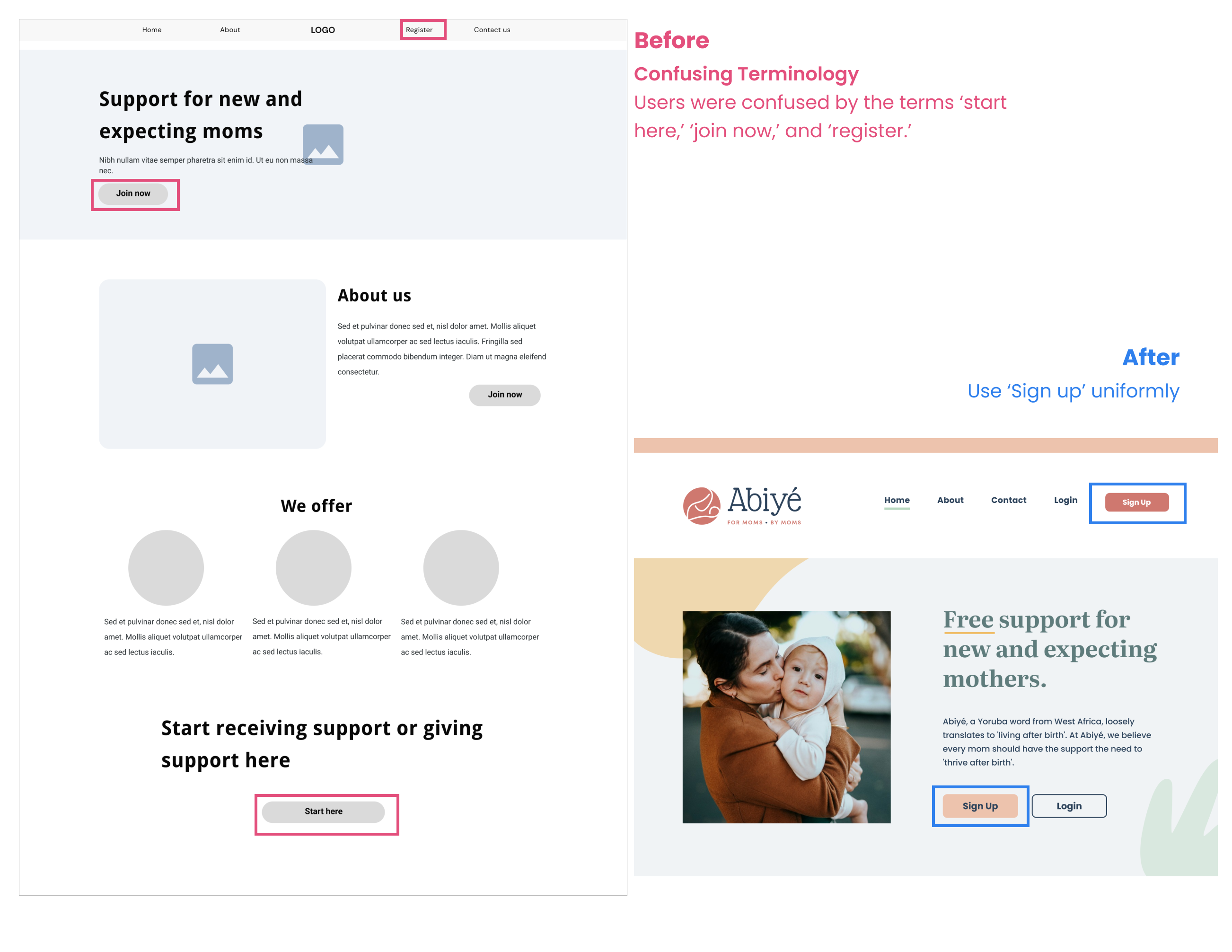
Other Issues Encountered:
- Search Functionality
Users wanted the ability to search by keywords and have more filtering options when finding support. - Redundant Fields
Users felt that the fields for 'first name,' 'last name,' and 'postcode' were redundant.
Next Steps
- In-Depth Interviews:
Conduct more in-depth interviews to explore the need for babysitting support, addressing the significant differences between survey results and user insights.
- High-Fidelity Prototype Testing:
Perform a second round of usability tests using a high-fidelity prototype to evaluate the communication and matching flow between moms and volunteers, as well as the police check process.
Reflections
- Recruitment Challenges
Completing the task within a short time frame presented significant challenges, particularly in recruiting moms and volunteers with specific requirements for interviews and usability testing.
- Effective Collaboration
Regular check-in meetings and ongoing email communication allowed us to stay aligned and effectively resolve obstacles.
